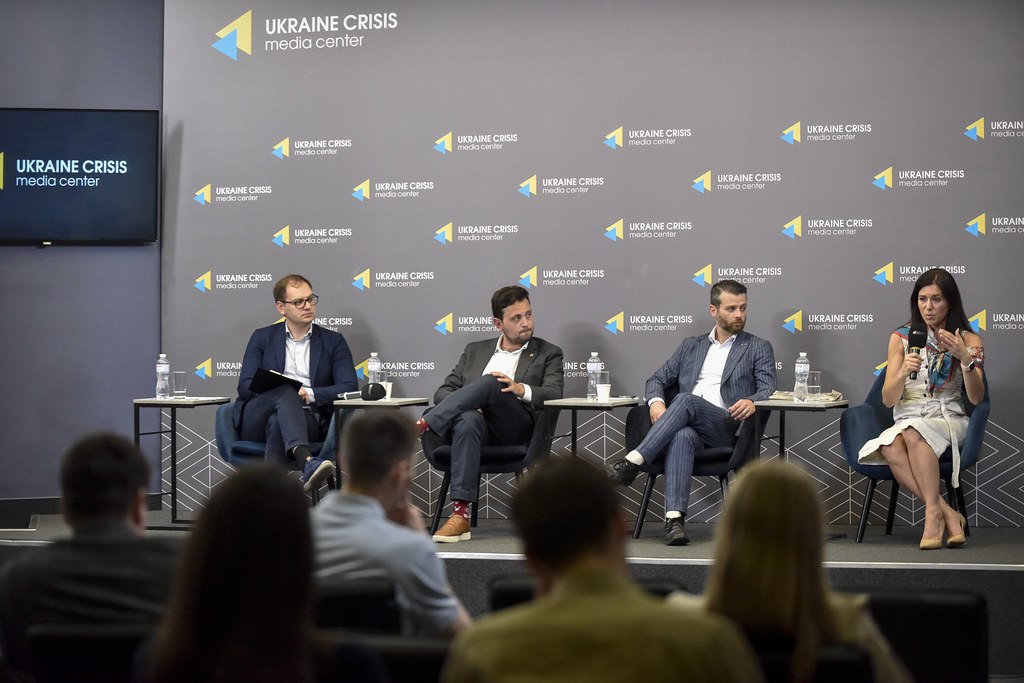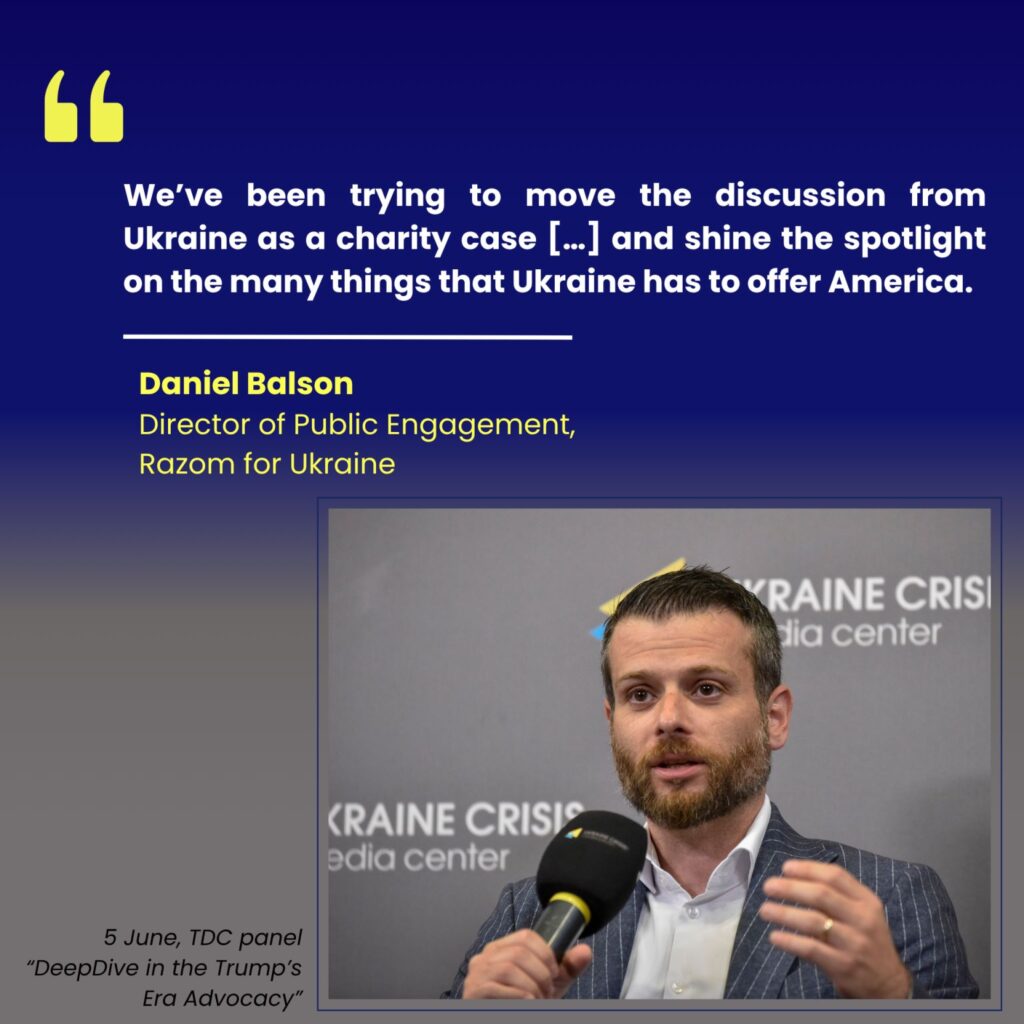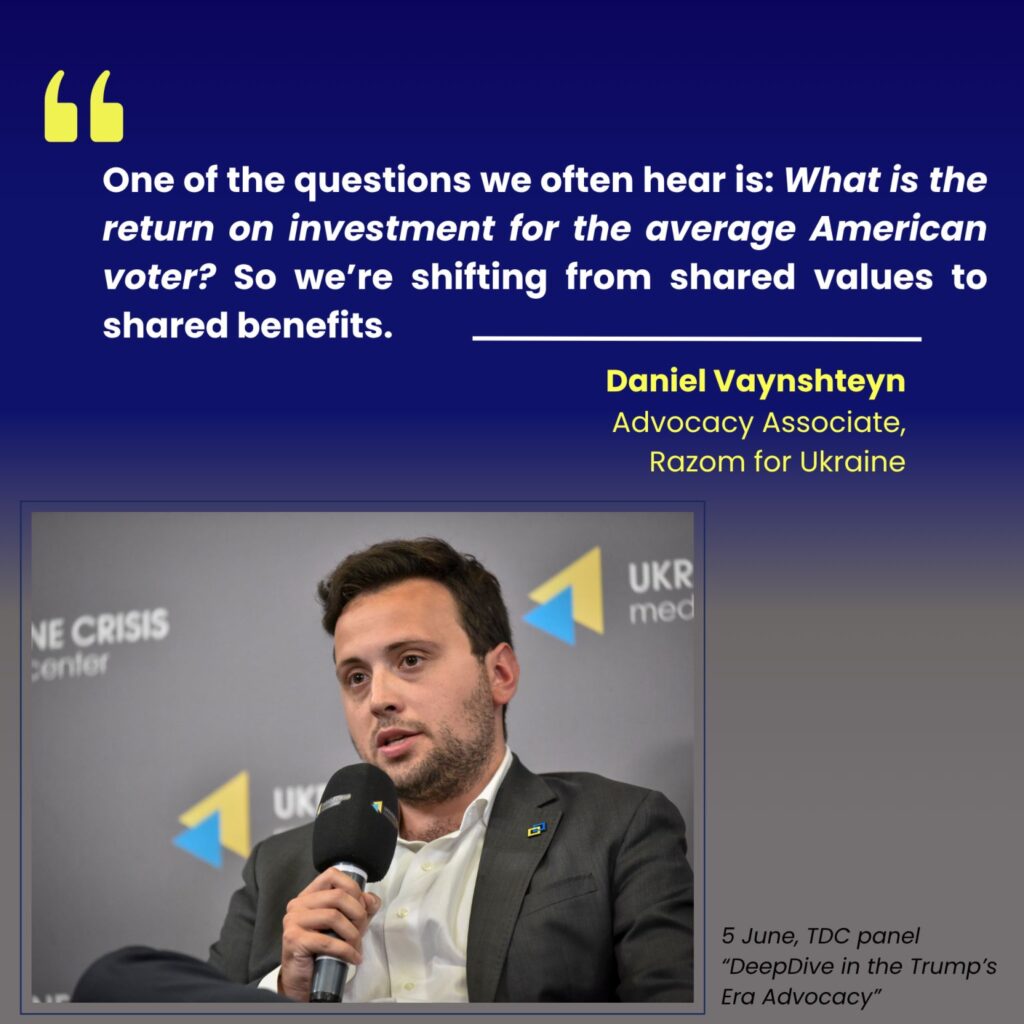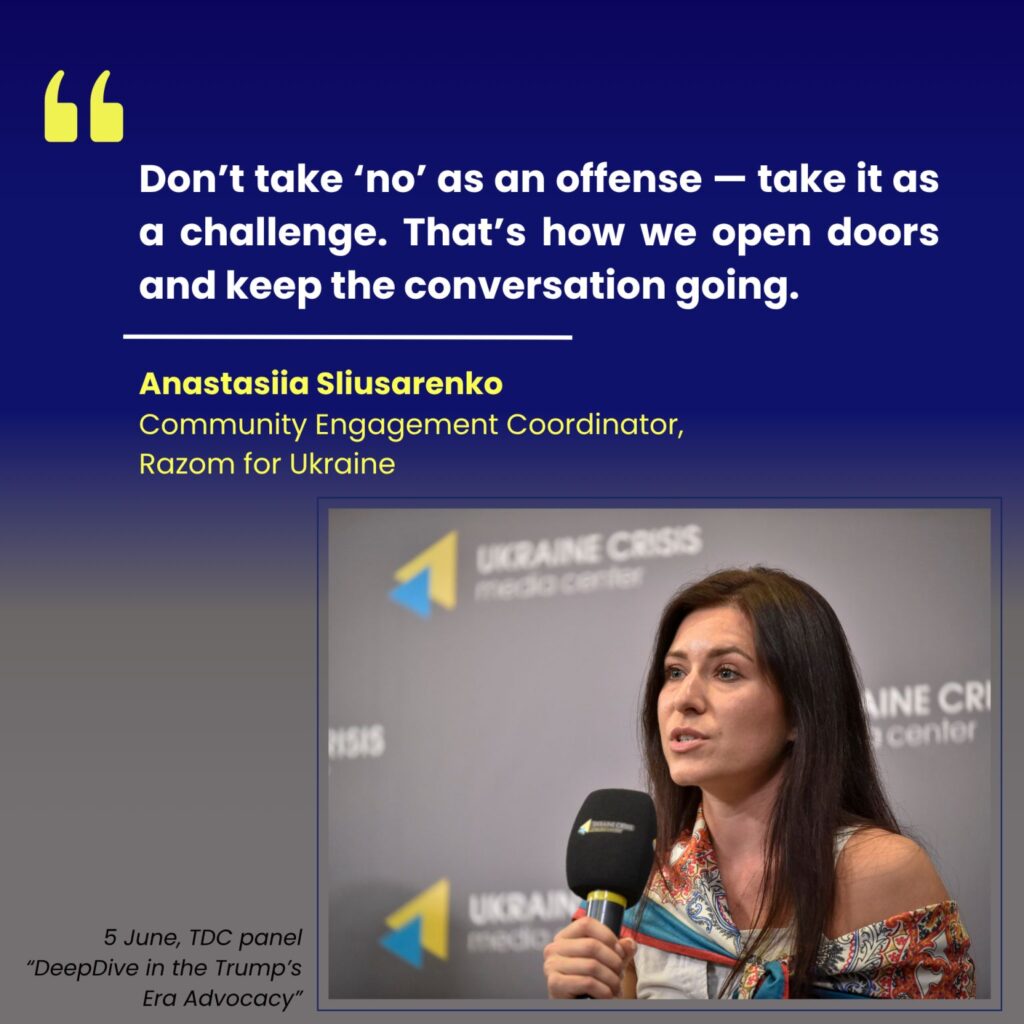On June 5, 2025, the Transatlantic Dialogue Center brought together the advocacy team of Razom for Ukraine to discuss how to sustain U.S. support for Ukraine under the Trump administration. Speakers addressed shifts in congressional dynamics, the centralization of decision-making in the White House, and the need to reframe Ukraine as a strategic ally offering military, technological, and economic value. The discussion also highlighted targeted outreach to Republican districts, emotionally resonant messaging focused on kidnapped children and religious freedom, and adapting communication tactics to appeal to conservative and MAGA-aligned audiences.

Daniel Balson, Director of Public Engagement
Daniel Balson opened by outlining the dramatic shift in U.S. policymaking under the new Trump administration, noting a departure from traditional policy processes and a more unconventional, dynamic approach to decision-making. This change has presented new dynamics for advocacy groups, with influence stemming from both official channels and informal networks close to the administration.
Balson described how Razom adapted its strategy by focusing outreach efforts on grassroots Republican communities across the U.S., aiming to build meaningful relationships in regions where support for the Trump administration is strongest. He underscored the value of engaging with veterans, religious leaders, and business figures who are supportive of Ukraine. As part of its efforts to communicate directly with the administration, Razom placed an ad in the New York Post, a publication known to be read by President Trump, drawing attention to the issue of Ukrainian children affected by the war. Ultimately, Balson stressed the need to reframe Ukraine as a contributor to U.S. strength, not as a country dependent on charity.
Daniel Vaynshteyn, Advocacy Associate
Daniel Vaynshteyn focused on Razom’s strategy in Congress, explaining that while bipartisan support for Ukraine still exists, actual legislative action has slowed due to the shift in the current administration’s foreign policy focus. Vaynshteyn explained that Razom now prioritizes tailoring its advocacy to individual districts, understanding local economic drivers and values to align Ukraine-related messaging with constituents’ interests. Razom focuses its advocacy efforts in five states: Florida, Louisiana, Georgia, North Carolina, and Texas, tailoring approaches based on local dynamics. For example, Razom highlighted Ukrainian purchases of Louisiana’s liquefied natural gas to win support from that state’s lawmakers. Vaynshteyn also stressed the importance of pro-Ukrainian Republicans speaking up and framing their support as politically and strategically beneficial. He also noted a shift from values-based rhetoric to language centered on return on investment for Americans in their advocacy effort.
Anastasiia Sliusarenko, Community Engagement Coordinator
Anastasiia Sliusarenko described how her team’s public engagement strategy evolved to adapt to the changing political environment in the U.S. Under the Biden administration, emotional messaging—focused on civilian suffering and war crimes – was effective, but it no longer resonates with audiences.
Now, the team emphasizes the topics that strongly appeal to conservative voters, such as religious freedom. Anastasia shared concrete examples of outreach, such as delivering a worn Ukrainian firefighter helmet to Speaker Mike Johnson in his hometown to create a personal connection.
According to Anastasia, it’s also important to bring U.S. lawmakers to Ukraine, as witnessing the impact of the war firsthand often changes their perspective and deepens their understanding.
As a result of the discussion, several key takeaways emerged that reflect the evolving nature of U.S.–Ukraine advocacy in the current political landscape:
- Advocacy efforts have shifted to navigate a more centralized policymaking process under the Trump administration.
- Ukraine should be framed as a strategic partner, with messaging focused on national security, economic benefits, and shared conservative values such as religious freedom.
- Effective advocacy requires consistent, targeted outreach – particularly in Republican districts – and a clear understanding of the political and psychological dynamics influencing U.S. policymakers.
The event recording is available at this Link.
The event was organized with the support of the International Renaissance Foundation.


